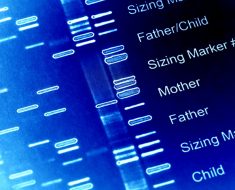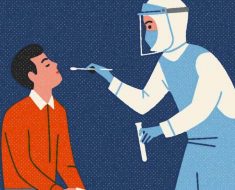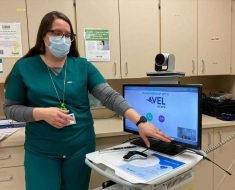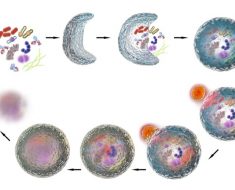The study covered in this summary was published on researchsquare.com as a preprint and has not yet been peer reviewed.
Key Takeaway
-
Cancer survivors who are more likely to engage in lifestyle behaviors associated with poor health outcomes — smoking, excessive drinking, e-cigarette use, and minimal physical activity or not exercising enough — include men, people with comorbidities or psychological distress, as well as those without a college degree or who are not married.
Why This Matters
-
Unhealthy lifestyle behaviors are associated with worse health outcomes, including mortality, among cancer survivors.
-
The study identifies vulnerable groups to target for behavioral interventions.
Study Design
-
The investigators reviewed responses from 2579 cancer survivors on the Health Information National Trends Survey from 2017–2020.
-
They then calculated multivariable-adjusted odds ratios for associations between unhealthy behaviors and sociodemographic and clinical characteristics.
-
Risky drinking was defined as having four or more alcoholic drinks per week.
-
Failing to meet physical activity guidelines was defined as exercising 2.5 hours or less per week.
Key Results
-
Overall, 25% of respondents reported risky alcohol use, 12% were current smokers, 3% were current e-cigarette users, and 68% did not meet physical activity guidelines.
-
Cancer survivors more likely to engage in unhealthy behaviors included men, White or Black individuals, and people who were unmarried, did not have a college education, or had comorbidities or psychological distress.
-
People with lung disease or depression were two times more likely to smoke or use e-cigarettes, and those with psychological distress were 1.6 times more likely to be physically inactive.
-
Risky drinkers were almost twice as likely and e-cigarette users were 16.4 times more likely to be current smokers.
-
Higher income earners were more likely to be heavy drinkers but were less likely to smoke and be physically inactive.
Limitations
-
Data were self-reported.
-
Cancer types were unknown; people were simply asked if they had ever been diagnosed with cancer.
-
Changes in health behaviors over time weren’t assessed.
Disclosures
-
There was no funding for the study, and the investigators did not report any relevant financial relationships.
This is a summary of the preprint research study, “Characterizing Disparities in Risky Alcohol Use, Tobacco Smoking, E-Cigarette Use and Physical Inactivity Among Cancer Survivors in the United States,” led by Jiyeong Kim of the University of California, Davis. The study has not been peer reviewed. The full text can be found at researchsquare.com.
M. Alexander Otto is a physician assistant with a master’s degree in medical science and a journalism degree from Newhouse. He is an award-winning medical journalist who has worked for several major news outlets before joining Medscape and also an MIT Knight Science Journalism fellow. Email: [email protected].
For more news, follow Medscape on Facebook, Twitter, Instagram, and YouTube.
Source: Read Full Article





